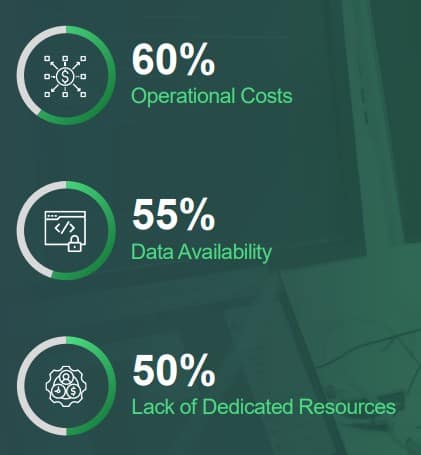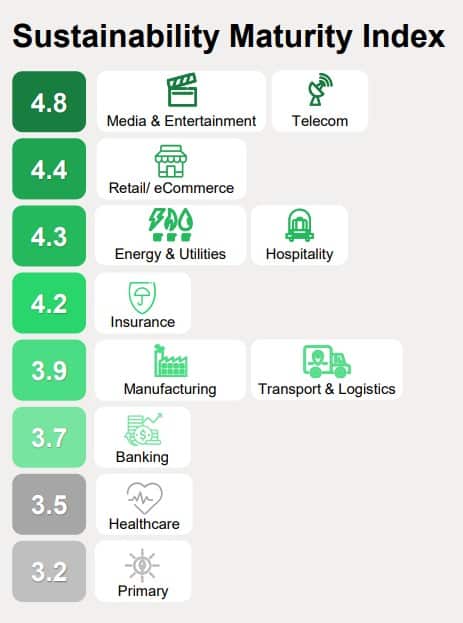ASEAN is predicted to become the fourth-largest economy in the world by 2030. Propelled by favourable demographic trends, rising income levels, increasing technology adoption and a fast-growing consumer market, the region’s outlook looks promising.
With this projected growth comes a huge responsibility for businesses in the region to balance the long-term imperative of a net-zero future with the short-term need to safeguard the bottom line.
Driven by the demand from customers, and investors and by governments’ sustainability mandates, organisations seek to develop and demonstrate an Environmental, Social and Governance (ESG) consciousness in their actions and investments.
Currently, all countries in ASEAN are members of the Sustainable Stock Exchange Initiative, and they all have issued green bonds either at the government or at the corporate level. However, are ASEAN organisations setting and achieving their sustainability goals?
Organisations often lack a holistic sustainability strategy
To better understand the business priorities and technology trends in ASEAN enterprises, including their sustainability goals, we collaborated with technology research and advisory firm Ecosystm to publish the “Kyndryl ASEAN Digital Transformation Study 2022”.
Over 500 ASEAN C-suite leaders participated in the study, and the findings revealed that 77% of organisations are focusing on becoming sustainable. Despite the greater focus on sustainability, many of the sustainability goals are often unclear, making it difficult for organisations to know where to start and how to execute. In ASEAN, only 23% of organisations have a corporate sustainability strategy in place.

Source: Ecosystm Kyndryl ASEAN Digital Transformation Study, 2022
Even an organisation with a corporate sustainability strategy may fail to consider all the key aspects required to achieve its goals. This is because the majority of organisations are focusing on budget allocation for sustainability initiatives and have not gone beyond that to identify the right skills and data required to support the initiatives.
In fact, only 4% of organisations have a holistic strategy. Most focus on external and last-mile challenges such as negotiating ambiguous reporting frameworks.
Data is a leading challenge for sustainability initiatives
The study also finds that data availability is among the top three barriers to sustainability projects in ASEAN. In today’s data-driven world, it is very likely that organisations have access to the data needed for their sustainability efforts.

Source: Ecosystm Kyndryl ASEAN Digital Transformation Study, 2022
It is however not often integrated within their overall data strategy to help identify the right data sets, collect the necessary data across all operations, and have embedded analytics that provides the right insights. It can take up to two years to identify and harness the data required to set science-based targets.
The key challenges cited confirm that organisations’ sustainability initiatives are still in the preliminary stages. Putting sustainability into practice effectively requires conviction, fortified by a strong technological and data foundation, in addition to open innovation.
Sustainability is becoming mainstream regardless of the industry
While sustainability initiatives are yet to mature, some industries are already leading the way. The Media and Telecom as well as Energy and Utilities industries, for example, are among the most mature industries that have been given cost-related incentives to adopt sustainable practices for future survival.

Rated on a scale of 1-10 (where 10 is most mature), based on responses to multiple questions in the Ecosystm Kyndryl ASEAN
Digital Transformation Study, 2022
The technology industry – such as managed services providers and hyperscalers – is also empowering customers to transition to the cloud which can lead to an estimated 22% to 93% increase in energy efficiency – as per Microsoft Cloud study.
Other industries that have initiated smaller eco-friendly measures have also found some success. This includes the Retail industry where there has been a focus on reducing the use of plastic in packaging and procuring locally to reduce carbon footprints.
The Hospitality industry has also introduced energy-efficient lighting and measures such as recycling linens to reduce water use.
Regardless of the industry, the sustainability movement is experiencing a shift as its key drivers – from ending poverty, and promoting diversity and inclusion, to supporting the circular economy – become integrated into mainstream corporate environments.
Sustainability initiatives have often been perceived as being cost centres for organisations. However, there is now growing evidence that leveraging the right scale and method can transform the ESG and sustainability agenda into a key source of value creation and differentiation for organisations.
The key to driving sustainability success
This move to value creation is an important paradigm shift as it focuses on potential business opportunities posed by the sustainability agenda.
Integrating sustainability and digital transformation drives stronger business performance, and if organisations want to further increase their sustainability impact, they must work together with partners that are aligned with their goals and hold them accountable.
To get started, organisations should think strategically about adopting a data-first approach and tackling the data availability challenges. Unlocking the power of data is key to driving a holistic approach to sustainability objectives.
To truly make a difference, sustainability must be a core component of any company’s organising principles, a C-suite mandate, and a major part of its DNA. Finally, it requires leadership from businesses of every size and industry.




